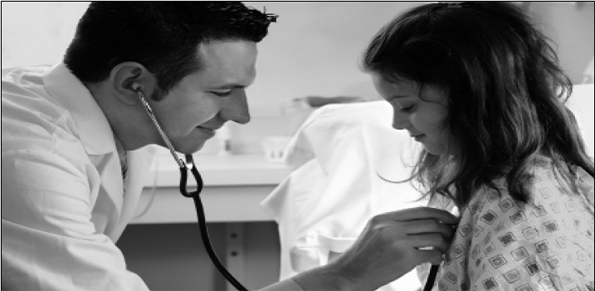
A cold is a common illness around the world. When Koreans catch colds, they firstly drink warm tea such as quince tea, pear squeeze, or ginger tea to recover. Although they try to recover using a folk remedy, when they don’t get better from the cold, Koreans easily go to the hospital to consult with doctors and take some medicine. In contrast, Americans haven’t easily gone to the hospital to consult with doctors if they had a slight cold. In the case of America, private medical insurance companies manage people’s health only for people working with a company, and the other people have to spend a lot of money to receive medical services, even in case of slight illnesses. To resolve this problem, President Barack Obama adopted the Patient Protection and Affordable Care Act, but there are still disputes on his policy in America. Not only in America, there were also serious disputes about whether medical privatization should be implemented or not in Korea. Like those cases of America and Korea, many problems around the world are related to people’s health and have always been handled as the most important matters for the people of that nation.
The importance of people’s health has increased since World War II. After finishing the war, many countries continuously tried to reestablish their nations and heal injured people. Medical care service was one of the ways to help people. Presently, many things have changed since World War II, but new problems that were brought about by the new era remain. To solve those problems, each nation is trying to improve and modify their medical service policies.
The Korean administration neglected public medical care service because it had no time or money for people after finishing the Korean War and during economic development. However, after legislating about the Medical Insurance Act in 1963, the Korean administration has tried to be concerned about people’s health and the medical system. The Medical Care Service was implemented as a 5-year economic development plan in 1977, and the National Health Insurance Service was implemented in 2000, so joining the service and paying an insurance premium to the administration was compelled by law.
CBT reporters asked foreigners who live in Korea about each country’s medical system and their treatments when they are sick.
By Kang Ill-gu | ig33@cbnu.ac.kr
Let’s find about people’s opinions!
When you catch a cold in your country, what do you do to recover?
Jenna Sparks(America) : If a person gets a bad cold, they usually go to the doctor and get some medicine. They might also take a day or two off from work or school because they don't want to infect other people. If a person has a mild cold, they might drink lots of hot tea and eat chicken noodle soup.
Gael(Rwanda) : First of all, in Rwanda, it is very rare to go immediately to the hospital or nearby clinic when somebody catches a cold. We used to go to the pharmacy to buy some cold pills because in Rwandan culture, many people don’t consider a cold as a disease which requires them to go to the hospital for treatments. Those who don’t have enough money to buy pills in the pharmacy used to take some traditional medicine, especially people who live in the countryside.
When you have a serious illness, does your country give you enough medical support?
Jenna Sparks(America) : My country has fantastic modern medical care. Many of the best hospitals in the world are in America. People are treated very well when they get sick, but the problem is that the care is very expensive. If you have a medical problem in America, you can easily go bankrupt paying for treatment, even if you have insurance. An emergency room visit can cost thousands of dollars even after insurance covers part of the cost.
Gael(Rwanda) : Rwandan government provides a lot of support to people who have serious illnesses because the government is making a lot of investments in health sectors. However, there is still a lack of doctors and nurses, so some people may not get medical support in a good way.
Comparing the Korean and your country's medical system, which system is better for people?
Jenna Sparks(America) : The Korean health care system has made a good impression on me. The medical care here is very cheap and very convenient. My only criticism is that some of the hospitals and clinics in Korea should be cleaned and remodeled, and that hospital rooms can be small and crowded.
Gael(Rwanda) : The disadvantages of the Korean medical system are that Korean hospitals provide services to the people for high prices even for simple treatment, but I don’t know if Korean people may feel comfortable with those prices in the hospitals.
And an advantage of the Rwandan medical system is that everybody in Rwanda receives a medical insurance as an obligation.


 All
All Experience
Experience






 Kang Ill-gu
Kang Ill-gu











